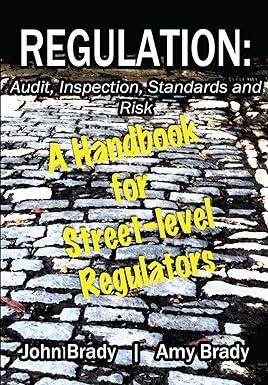Answered step by step
Verified Expert Solution
Question
1 Approved Answer
Your Neighbourhood Store is a small convenient store located in New Westminster, BC established and operated by a proprietor owner, Henry. Since Henry doesnt know
Your Neighbourhood Store is a small convenient store located in New Westminster, BC established and operated by a proprietor owner, Henry. Since Henry doesnt know much accounting, he keeps the accounting records on cash basis at the beginning. This means he records sales when his customers pay for the items and records purchases of inventory, supplies, utilities etc. when the store makes payments. While his customers usually pay everything by cash when they purchase from his store and the revenues seem stable each month at around $10,000, he notices that the net income (loss) fluctuates dramatically every month. For example, he purchased inventory of $5,000 in January, however, because he didnt have to pay his supplier until February, he didnt record inventory purchase until February when he makes the payment. In February, he also paid the property tax of $6,000 for the whole year from January to December, and recorded a property tax expense of $6,000 in February. These resulted a net loss of $1,000 in February, while in January he didnt incur any major payments so the store showed a net income of $10,000. He senses that somethings not right about the cash basis, but doesnt know what he should do. Henry asks you for advice. Explain to him:
1) What is the difference between cash basis and accrual basis? Which one is proper in Accounting? (10%)
2) Based on accrual accounting, which month should Henry record the inventory purchase (January or February)? How would he record the entry? (15%)
3) Assume Henry sold half of the inventory he purchased in January and another half in February. When does inventory become the cost of goods sold and what are the amounts? Provide the journal entry for January and February. (15%)
4) Explain accrual and deferral adjustments. For the property tax related transactions, which month should Henry make accrual adjustment, and which months should Henry make deferral adjustments? How would Henry record the property tax related entries in January, February, and March to December, respectively? (40%)
5) Show henry a brief income statement of his store for January and February, assuming other than cost of goods sold and property tax, the store has all other expenses of $4,000 each month in cash. (20%)
Rubrics in each section:
Level 5: the contents demonstrated are clear and complete and show a thorough understanding; the explanation are in-depth, and free of errors.
Level 4: the contents demonstrated are generally clear and complete, although might lack in-depth in certain areas with minor errors.
Level 3: the contents demonstrated are roughly clear, but may not be complete in certain areas and with some errors.
Level 2: the contents demonstrated are unclear and incomplete with many errors.
Level 1: the contents demonstrated are hard to follow with lots of errors.
Step by Step Solution
There are 3 Steps involved in it
Step: 1

Get Instant Access to Expert-Tailored Solutions
See step-by-step solutions with expert insights and AI powered tools for academic success
Step: 2

Step: 3

Ace Your Homework with AI
Get the answers you need in no time with our AI-driven, step-by-step assistance
Get Started


